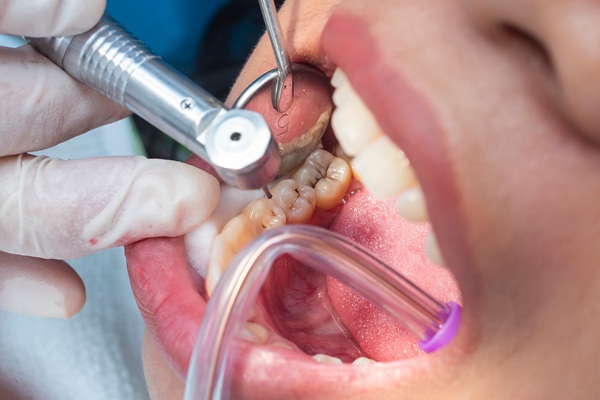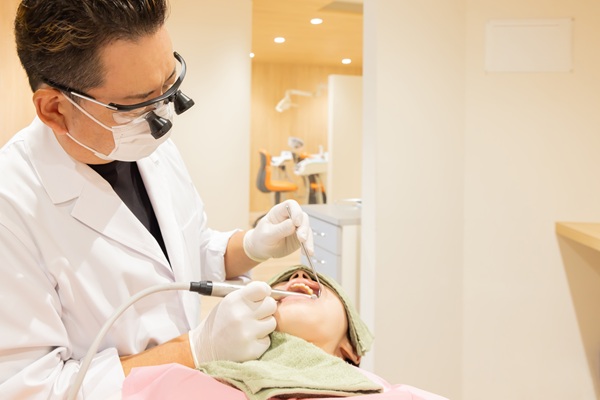Oral Hygiene Tips From a General Dentist to Help Your Smile Shine

Maintaining a robust oral hygiene routine is one of the most effective ways to promote a bright, healthy smile. A general dentist emphasizes the importance of both daily and professional care in maintaining oral health. Here are some helpful tips to help you maintain your smile between dental visits.
Brush thoroughly and consistently
A general dentist typically recommends brushing at least twice a day with a soft-bristled toothbrush and toothpaste containing fluoride. A good brushing technique removes plaque, which is a sticky film of bacteria that contributes to tooth decay and gum disease. The patient should use gentle, circular motions along the gumline and all surfaces of their teeth. The toothbrushing should last for at least two minutes each time to ensure comprehensive coverage.
Additionally, it is essential to replace toothbrushes every three to four months. Frayed or worn bristles are less effective in removing plaque and may irritate the gums. For those who use electric toothbrushes, they should replace their toothbrush head just as often.
Floss every day to prevent gum disease
Flossing clean areas between the teeth that a toothbrush cannot reach. A general dentist encourages daily flossing to reduce the risk of gingivitis and periodontal disease. The patient should gently guide the floss between the teeth and curve it around each tooth in a C-shape to clean below the gumline without disturbing the soft tissues. For those who find traditional string floss difficult, the dentist may recommend alternative products like dental picks or water flossers.
Use mouthwash for added protection
An antimicrobial or fluoride mouthwash can provide additional protection against bacteria and tooth decay. Rinsing with mouthwash after brushing and flossing helps remove food particles and reduce the presence of harmful oral bacteria. Many general dentists suggest mouthwash as a supplement to, not a replacement for, brushing and flossing.
Patients should select a mouthwash that meets their needs. There are a variety of mouthwashes that can freshen breath, reduce plaque, or strengthen enamel. In some cases, the general dentist may prescribe a stronger mouthwash that can fight off bacterial infection that can lead to gum disease.
Limit sugary and acidic foods
Diet is another important component of oral health. When individuals consume large amounts of sugary and acidic foods, they can experience enamel erosion and an increased risk of cavities. While these foods are fine in limited quantities, it is important for patients to minimize their consumption of soda, candy, citrus foods, and other acidic beverages and snacks. Additionally, drinking water after meals and chewing sugar-free gum can help neutralize oral acids and stimulate saliva flow, which helps protect the teeth from further attacks.
Schedule regular dental visits
Routine visits allow for the dentist to detect dental issues in their early stages. Most patients benefit from biannual checkups (at least every six months). However, those with a history of oral health issues like gum disease may require more frequent visits. These appointments help remove plaque and tartar buildup, as well as identify cavities or other concerns before they worsen. Professional guidance will also include personalized tips based on each patient's unique needs.
Learn more oral hygiene tips from our general dentistry team
A bright and healthy smile requires more than occasional brushing and flossing. Adopting daily oral hygiene habits and regular dental visits can help you maintain optimal dental health. Are you ready for more tips and tricks? Reach out to our Huntsville office for more information or to schedule your next appointment.
Request an appointment here: https://www.yourhuntsvilledentist.com or call René A. Talbot, DDS at (256) 382-6690 for an appointment in our Huntsville office.
Check out what others are saying about our dental services on Yelp: General Dentist in Huntsville, AL.
Recent Posts
You might want to head to a general dentist if you find yourself dealing with a cavity. Cavities are tiny holes that form on teeth because of tooth decay. Acids created by oral bacteria eat away at teeth surfaces, creating those tiny holes. Other symptoms include reoccurring toothaches, increased sensitivity to hot and cold foods,…
General dentistry consists of a lot of routine oral health care, which also happens to include restoring teeth that are in bad shape due to damage. Common damage may include cracks, chips, or cavities, all of which can be addressed with the help of different dental restorations. Continue reading to find out what dental restoration…
A general dentist performs most of the treatments commonly used in dentistry. These oral professionals spend most of their time performing preventative treatments, like tooth cleanings, but they also perform more complex treatments, like root canals. A general dentist also serves as an educator, teaching patients how to properly take care of their teeth and…
Considering cosmetic dental work from a general dentist? Although cosmetic dentistry is its own field, general dentists also offer an array of procedures that can be used to improve the way that the teeth look. There are a lot of different procedures that can be performed in a general dentistry setting. Keep reading to find…


